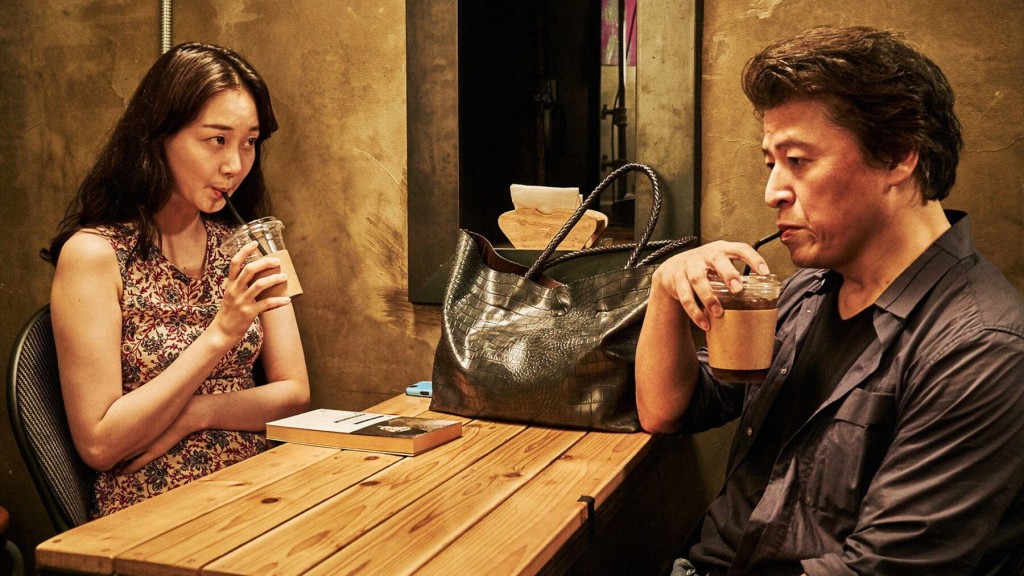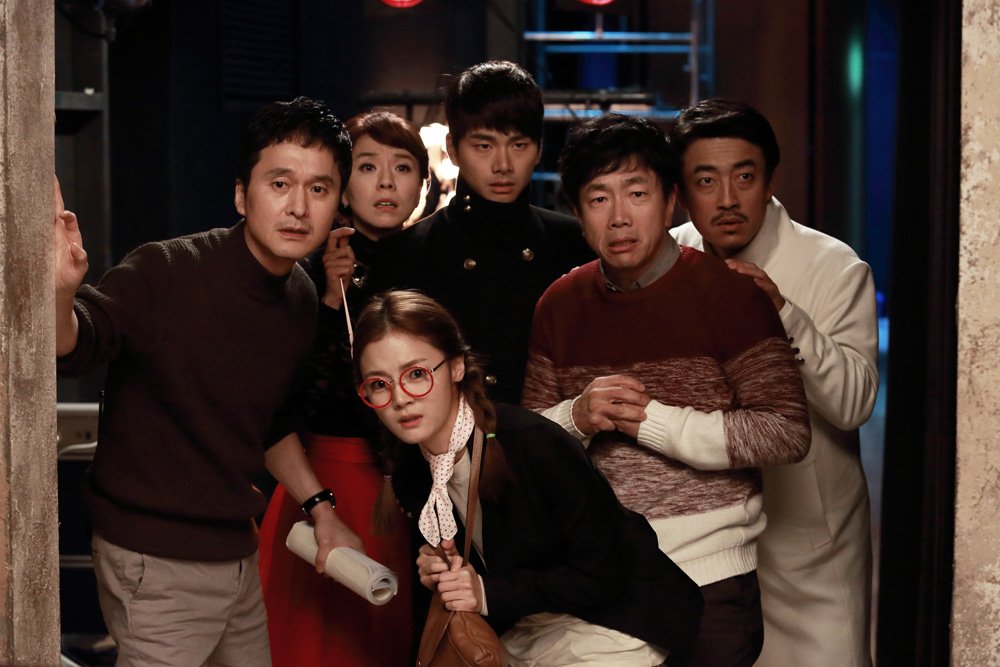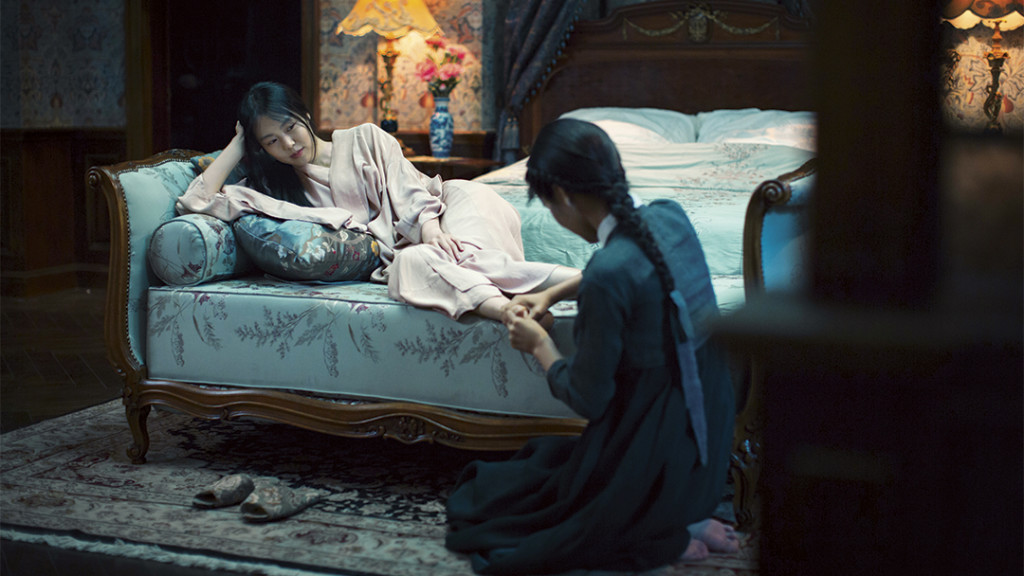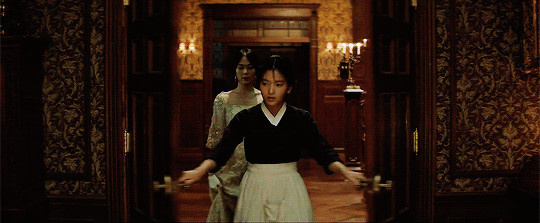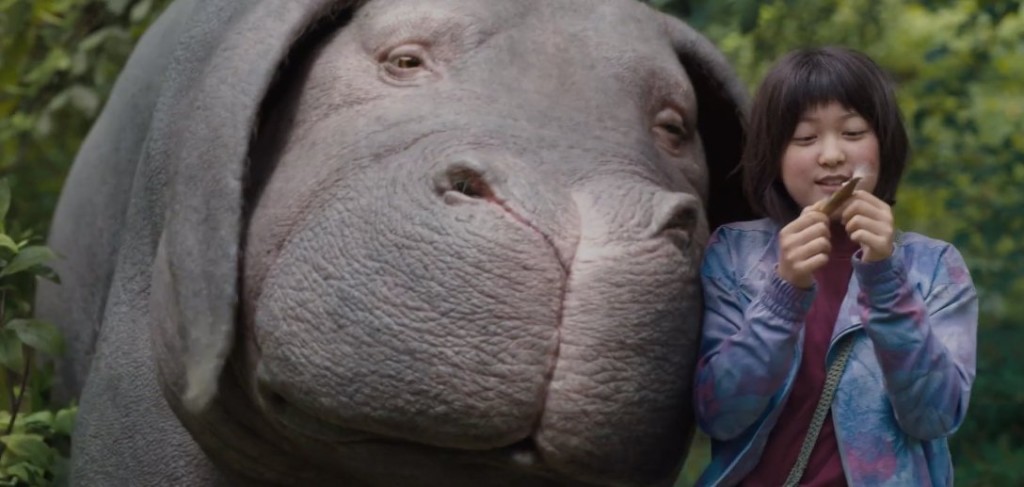
Director Bong Joon Ho made Memories of Murder, which I consider a masterpiece of neo-noir and of both the cop buddy and serial killer sub-genres. I have Memories of Murder at #14 on my Best Movies of the 21st Century – So Far. I also loved his affecting drama Mother. As with the sci-fi hit Snowpiercer, Bong Joon Ho got a Hollywood budget for Okja so his imagination could run wild.
And run wild he does. A malevolent and monstrous corporation has engineered “superpigs” for future human consumption. In a scheme to “Green wash” the product, they have distributed the least disturbing-looking of these freaks to be raised by indigenous farmers around the world. One of the superpigs, a female named Okja, is raised on a verdant Korean mountainside by the girl Mija (Seo-hyun Ahn) and her grandfather, Mija and Okja are best friends. But Mija will need to find a way to thwart the corporate baddies who have planned all along to turn Okja into mutant bacon.
The chubby and clumsy Okja, created by a first-rate Korean CGI crew, is instantly lovable for her love for and loyalty to Mija – they even spoon at bedtime. Okja looks and moves more like a hippo than a pig, which makes the movie’s point about genetic engineering while keeping her adorable.
Most of Okja is pretty funny. It opens with the artificially happy music of an industrial film (one imagines a title like Your Friend the Manhole). There’s a slacker Millennial with the worst possible attitude for an employee, sure to be recognized by any boss in the audience. The humor ranges from the sly and cutting corporate satire to the literally scatological comedy when Okja expels manure.
The funniest part of Okja is a cell of sweetly earnest and deluded radical animal rights activists, the Animal Liberation Front (ALF), led by Jay (Paul Dano). One of their members is so committed to erasing the human impact on the planet that he refuses to eat anything from animals OR plants, and has to be periodically force-fed by his companions when he passes out from malnutrition. The ALF plans elaborate actions, like repeated rescues of Okja, that play out in mad cap craziness that brings to mind the best of Mack Sennett and Richard Lester.
Okja’s highlight is a chase scene that begins in a tunnel and ends in an underground mall in Seoul. It’s a triumph of zany thrills.
Tilda Swinton plays twin sisters who are heirs to a vile robber baron industrialist and, with great relish, Swinton depicts them to represent contrasting faces of modern capitalism. One is the corporate leader who wants to make money by exploiting the rest of us, but wants to be loved for it and be perceived as benign; I know a big business leader who continually describes himself as of “the employer community”. The other is the type of unapologetic, Social Darwinist corporate villain who just doesn’t care what we think – if it has value, she wants it and she will take it.
Seo-hyun Ahn is appropriately steely as the spunky Mija. Paul Dano is lovable as the clumsily passionate activist leader. A very broad Jake Gyllenhall plays a corporate spokesman at once despicable, dissolute and ridiculous in his 1970s shorts.
There’s one superb performance in Okja that is escaping critical notice. Giancarlo Esposito plays Frank, the chief henchman and corporate advisor to both of the twin sister CEOs. Frank is a master of “managing up”, and one scene in which he spurs a CEO to adopt his idea – and really, really believe that she thought up herself – is brilliantly funny. In a movie filled with very broad performances, Esposito underplays Frank to great effect.
I do have a problem with Okja’s militant anti-meat perspective. I advocate knowing where our food comes from, whether it’s the sweet corn that I buy at my farmer’s market from a farmer in Brentwood, California, or the preserved lemons I buy in a jar from Egypt. Today less than 2% of Americans live on farms, but in my parents’ day, pretty much everyone had experienced firsthand the butchering of meat.
Humans have been eating meat since we could catch another animal (or stumble across one that was already dead). There is no way to eat meat without killing an animal, skinning and bleeding it and cutting it up. Even chicken and steers and pigs that are raised free-range, fed organic corn and yada yada still have to be killed and cut up somewhere – they don’t jump into those shrink-wrapped packages themselves. All that being said, I understand that some people prefer not to see this.
I have toured a meat-packing plant, and the slaughterhouse in Okja is a pretty accurate depiction of the process, although the lighting has been dimmed for a more sinister effect. I have also seen animals slaughtered for dinner on an All-American family farm, and the slaughterhouse is much cleaner and arguably more humane.
Still, even in Okja, Mija catches fish for dinner, and her grandfather raises – and cooks – chickens. I respect the members of my own family who choose not to eat animals. But I think that Okja runs astray by making this perfectly reasonable choice into a moral litmus test.
Some folks will also have a problem with the movie’s extreme changes in tone. The Animal Liberation Front’s Seoul rescue scene has a very Keystone Kops vibe, where nobody gets hurt. In the Manhattan chase scene, however, commandos rain down realistic and brutal violence upon the Animal Liberation Front, making the point that corporate forces play for keeps.
I do NOT recommend Okja for children younger than middle school-aged, for whom the slaughterhouse scenes could be traumatizing.
There’s ONE MORE scene at the very end of the closing credits, so stick around.
I saw Okja at a theatrical preview, courtesy of the Camera Cinema Club; most viewers are going to watch this at home on Netflix, but I recommend viewing Okja on the big screen if you get the chance.

